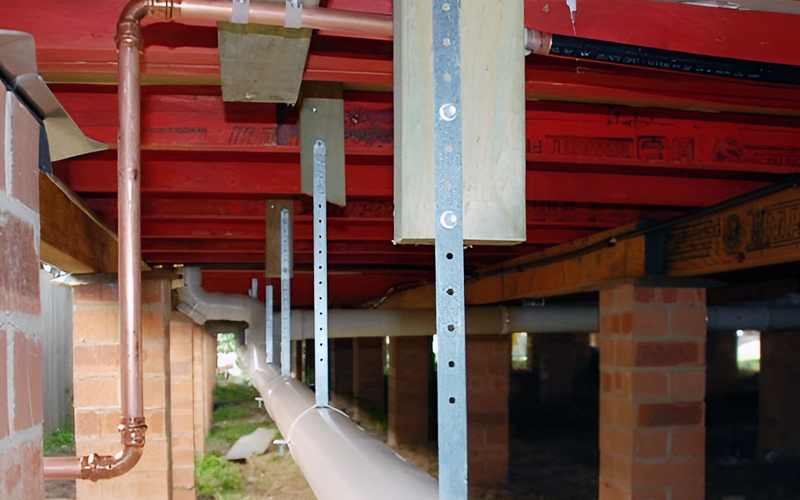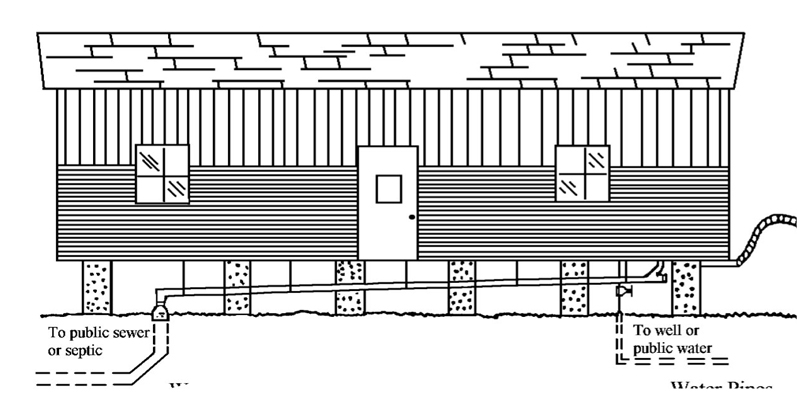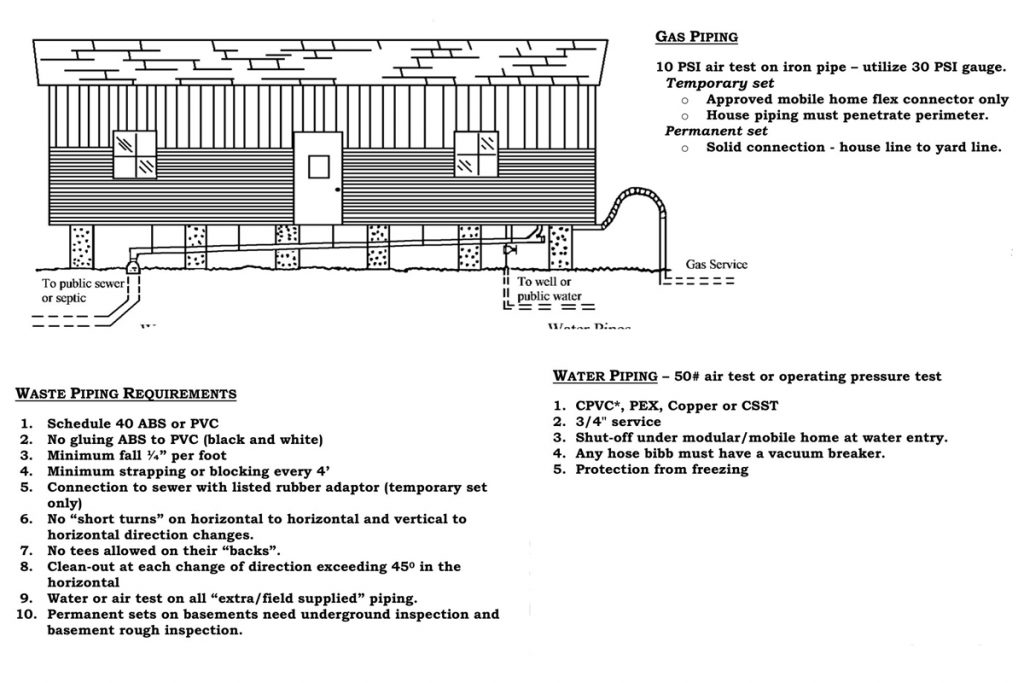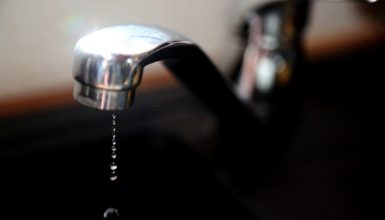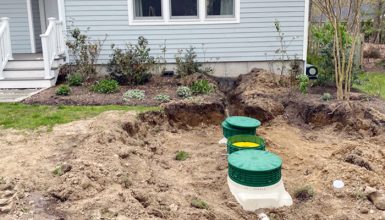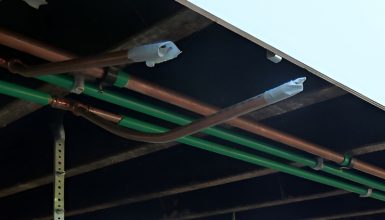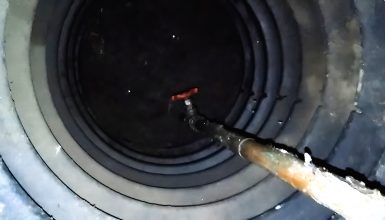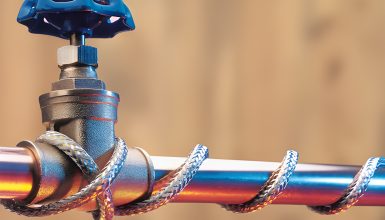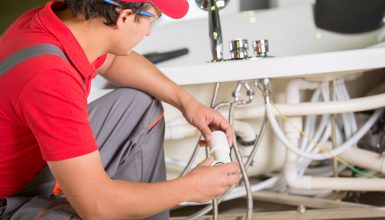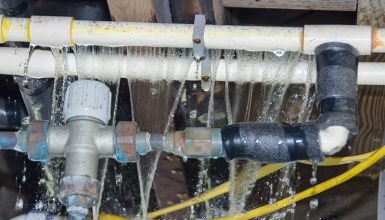Do you know what makes mobile homes genuinely unique? That’s right, it’s their plumbing system! Mobile home plumbing is unlike any other system, making it so special. It’s a crucial aspect of your home that keeps you and your family comfortable and healthy. Without proper plumbing, you won’t be able to take a warm shower, wash your dishes, or even use the toilet properly. That’s why understanding and maintaining your mobile home plumbing system is essential.
How Does Mobile Home Plumbing Different
It’s important to note that mobile home plumbing systems are different from traditional home plumbing systems. But what exactly makes them different?
Firstly, mobile home plumbing systems are designed to be more compact and lightweight than traditional ones. This is because mobile homes must be transported, and their plumbing systems must withstand movement without causing leaks or other plumbing issues. As a result, mobile home plumbing systems use plastic or copper pipes that are smaller in diameter than those used in traditional homes.
Secondly, mobile home plumbing systems are typically more straightforward than traditional ones. For example, mobile homes often have a single waste line that carries all wastewater out of the house rather than separate lines for each fixture. This means that a clog in the waste line can affect all fixtures in the home.
Finally, mobile home plumbing systems are often installed differently than traditional ones. Mobile homes are typically built in a factory and transported to a site, seated on a foundation. Because of this, mobile home plumbing systems are often pre-installed in the factory and may require specialized installation techniques. Traditional plumbing systems, on the other hand, are typically installed on-site by a plumber.
Overall, there are similarities between mobile homes and traditional plumbing systems. The differences between the two are significant to understand when it comes to maintaining and repairing your plumbing system.
Types of Mobile Home Plumbing Systems
Mobile home plumbing diagram
Let’s talk about the plumbing systems you’ll find in mobile homes. Most mobile homes have two plumbing systems: water supply and waste disposal.
- Water supply system
The water supply system brings fresh water into your mobile home. It includes pipes that carry water from the water source to your home, valves, and other components that control the water flow. The water supply system also consists of the fixtures in your home that use water, such as faucets, showerheads, and toilets.
- Waste disposal system
On the other hand, the waste disposal system is responsible for removing wastewater from your home and sending it to the septic or sewer system. It includes pipes that carry wastewater from your fixtures to the septic or sewer system. Also, vents and other components help maintain proper air pressure in the pipes.
Components of Mobile Home Plumbing
The main components of a mobile home plumbing system include pipes, fixtures, and drains.
- Pipes
Pipes are the most crucial part of any plumbing system, and mobile home plumbing systems are no exception. The pipes in a mobile home carry water to and from your fixtures and wastewater from your fixtures to the septic or sewer system. They are typically made of plastic or copper. They are designed to be lightweight and compact to fit the specific needs of a mobile home.
- Fixtures
Fixtures are the components in your mobile home that use water, such as faucets, toilets, and showerheads. They are connected to the pipes in your plumbing system and allow you to use water in your home. Fixtures come in various styles and designs and can be customized to fit your needs and preferences.
- Drains
Drains are the components in your mobile home that remove wastewater from your fixtures and send it to the septic or sewer system. They are connected to the pipes in your plumbing system and are typically located in your sinks, showers, and tubs. Drains must be kept clean and clear to prevent clogs and backups in your plumbing system.
- Other components
Other vital components of mobile home plumbing systems include valves, pumps, and vents. Valves are used to control the flow of water in your plumbing system, while pumps are used to increase water pressure in your pipes. Vents are used to maintain proper air pressure in your pipes, which helps prevent clogs and other plumbing issues.
Types of Pipes and Fittings in Mobile Home Plumbing
Mobile home plumbing systems use several types of pipes and fittings, including:
- PVC (Polyvinyl Chloride) Pipes
PVC pipes are lightweight, affordable, and easy to install, making them popular for mobile home plumbing. They are also resistant to corrosion and chemical damage.
- CPVC (Chlorinated Polyvinyl Chloride) Pipes
CPVC pipes are similar to PVC pipes but are designed to withstand higher temperatures and pressures. They are often used in mobile home plumbing systems to carry hot water.
- PEX (Cross-linked Polyethylene) Pipes
PEX pipes are flexible and easy to install, making them popular for mobile home plumbing systems. They are also resistant to freezing and bursting.
- Copper Pipes
Copper pipes are a durable and long-lasting option for mobile home plumbing systems. They are resistant to corrosion and can withstand high temperatures and pressures.
Types of Fittings
In addition to pipes, mobile home plumbing systems also use several types of fittings to connect the pipes together. Some common types of fittings used in mobile home plumbing include:
- Couplings
Couplings are used to connect two pipes together in a straight line.
- Elbows
Elbows are used to connect two pipes together at a 90-degree angle.
- Tees
Tees are used to connect three pipes together at a T-shaped junction.
- Valves
Valves are used to control the flow of water in your mobile home plumbing system.
It’s important to note that the specific types of pipes and fittings used in your mobile home plumbing system will depend on several factors, including the age of your home, local building codes, and the installer’s preferences.
How to Install Pipes and Fittings in Mobile Homes
Installing pipes and fittings in a mobile home plumbing system can be complex. It should only be performed by a licensed plumber or professional installer. However, here’s a general overview of how pipes and fittings are typically installed in a mobile home plumbing system:
Step 1: Plan the plumbing layout.
Before installing any pipes or fittings, it’s essential to plan out the layout of your plumbing system. This involves determining the fixtures’ location, the pipes’ path, and the location of any necessary vents.
Step 2: Install the pipes
Once the layout is planned, the pipes can be installed. This involves measuring and cutting the pipes to the correct length and securing them using fittings and connectors.
Step 3: Install the fittings
After the pipes are installed, the fittings can be installed to connect them together. This involves using couplings, elbows, tees, and other fittings to create a network of interconnected pipes.
Step 4: Connect the fixtures
Once the pipes and fittings are installed, the fixtures can be connected. This involves using specialized connectors to connect the fixtures to the pipes.
Step 5: Test the system
After installing the plumbing system, testing it to ensure it works correctly is crucial. This involves turning on the water supply and checking for leaks or other issues.
Mobile Home Plumbing Maintenance
Maintaining your mobile home plumbing system is essential to ensuring that it functions properly and lasts for many years to come. Here are some tips for keeping it:
- Regular inspections
Regular plumbing system inspections can help you identify potential issues before they become significant problems. Look for signs of leaks, corrosion, or other damage, and address any issues as soon as possible.
- Keep fixtures clean
Keeping your fixtures clean can help prevent clogs and other plumbing issues. Use a drain strainer to prevent hair and other debris from going down the drain, and clean your fixtures regularly with a mild cleaning solution.
- Don’t use harsh chemicals.
Harsh chemicals, such as drain cleaners and bleach, can damage your pipes and fixtures. Instead, clean your plumbing system using natural cleaning solutions like vinegar and baking soda.
- Monitor water pressure
High water pressure can stress your plumbing system and cause leaks. Use a water pressure gauge to monitor the water pressure in your home and adjust it as needed.
- Check your septic system.
Your mobile home must be inspected and pumped regularly if connected to a septic system. This can help prevent backups and other issues in your plumbing system.
- Winterize your plumbing system.
If you live in an area with cold winters, it’s important to winterize your plumbing system to prevent frozen pipes. This involves insulating pipes, shutting off outdoor faucets, and protecting your plumbing system from the cold.
Troubleshooting Mobile Home Plumbing Problems
Mobile home plumbing problems can be frustrating and inconvenient. Here are some common mobile home plumbing problems and how to troubleshoot them:
- Low water pressure
Low water pressure can be caused by several factors, including clogs in the pipes or fixtures, a malfunctioning pressure regulator, or a problem with the water supply. Try cleaning your fixtures, checking the pressure regulator, and contacting your water provider to identify and resolve the issue.
- Leaks
Leaks can be caused by damaged pipes or fittings, corrosion, or other issues. If you notice a leak, turn off the water supply to your home and contact a licensed plumber or professional installer to identify and repair the problem.
- Clogs
Clogs can occur in your pipes or fixtures and can be caused by hair, food particles, or other debris. Try using a plunger or drain snake to remove the clog, and avoid using harsh chemicals that can damage your pipes and fixtures.
- Running toilets
Running toilets can waste water and lead to high water bills. Try adjusting the water level in the tank, replacing the flapper or fill valve, or contacting a plumber to identify and resolve the issue.
- Frozen pipes
Frozen pipes can occur in mobile homes during cold weather. To prevent frozen pipes, insulate your pipes, keep your home heated, and shut off outdoor faucets.
Suppose you’re experiencing a mobile home plumbing problem you can’t resolve. In that case, contacting a licensed plumber or professional installer is essential. They can identify and resolve the issue quickly and safely, helping to prevent further damage to your plumbing system.
Upgrading Mobile Home Plumbing
If you’re thinking about upgrading your mobile home plumbing system, there are several factors to consider:
- Budget
Upgrading your mobile home plumbing system can be expensive, so setting a budget is essential before you begin. Consider the cost of materials, labor, and any permits or inspections that may be required.
- Age of your home
If your mobile home is older, upgrading your plumbing system may be necessary to ensure it functions properly and meets current building codes.
- Local building codes
Before upgrading your mobile home plumbing system, it’s essential to check with your local building department to ensure that the upgrades meet local building codes and regulations.
- Type of plumbing system
If you’re upgrading your mobile home plumbing system, consider whether you want to replace your existing plumbing system with a different type of system, such as a PEX system. Each type of plumbing system has its advantages and disadvantages. So it’s essential to choose the system that’s right for you.
- Plumbing needs
Consider your plumbing needs when upgrading your mobile home plumbing system. Do you need more fixtures, better water pressure, or a larger water heater? These factors can impact the size and type of plumbing system you need.
- Hire a professional
Upgrading your mobile home plumbing system can be a complex process. Hiring a licensed plumber or professional installer ensures the work is done correctly and safely.
Overall, upgrading your mobile home plumbing system can be an excellent investment in your home’s value and functionality. Still, it’s essential to consider all of these factors before beginning the process.
Conclusion
In conclusion, mobile home plumbing is essential to your home’s functionality and value. From the pipes and fittings to the fixtures and vents, every aspect of your mobile home plumbing system is crucial in ensuring your home is comfortable and safe.

